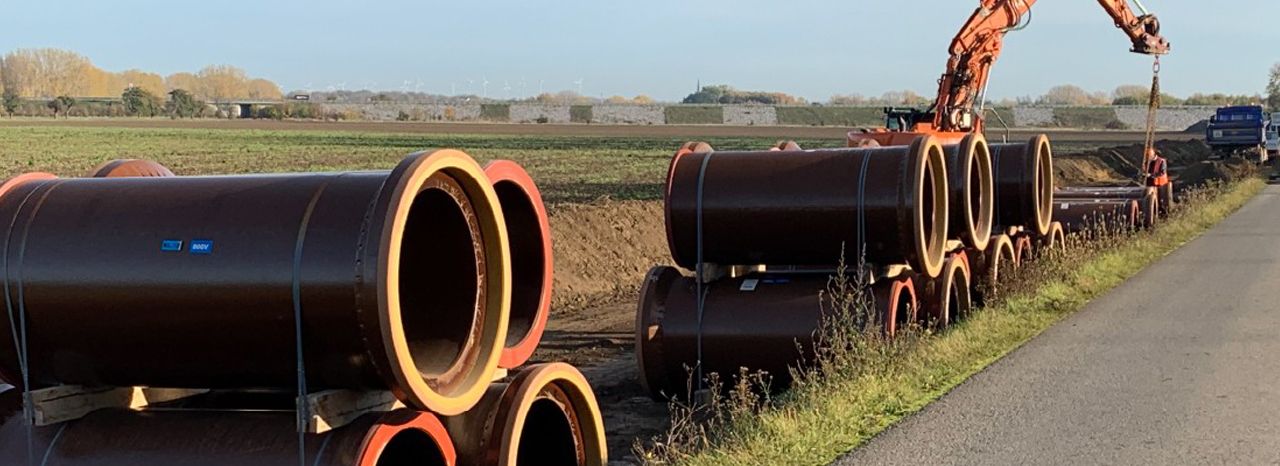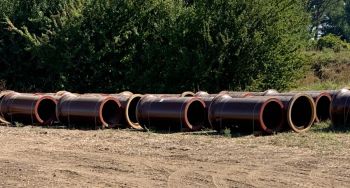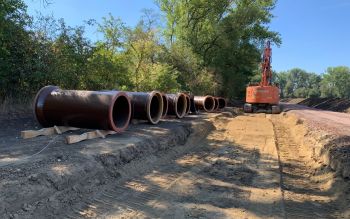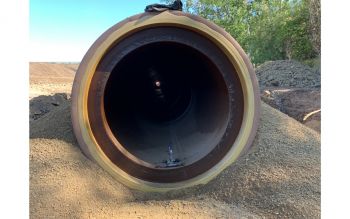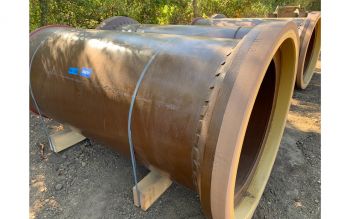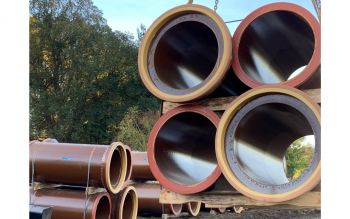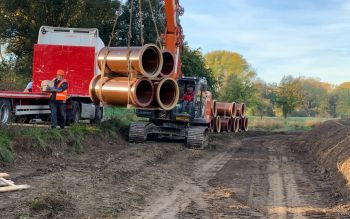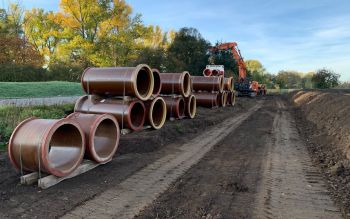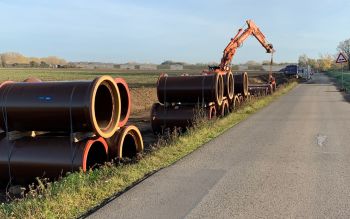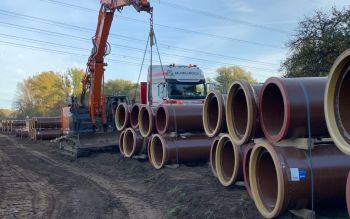Historic town of Quedlinburg upgrades its wastewater system with Steinzeug- Keramo vitrified clay pipes
However, beneath Quedlinburg’s streets lies an ageing main wastewater collector dating back to 1905-1910, consisting of a 700/1050 mm profile egg-shaped pipeline.
The project
When the Saxony-Anhalt State Office for Flood Protection and Water Management initiated flood protection upgrades and dyke repairs, it became clear that the century-old wastewater collector required a complete rebuild.
The Zweckverband Wasserversorgung und Abwasserentsorgung Ostharz, a regional water and wastewater utility association, partnered with Quedlinburg-based consulting engineers Deuter. Their remit included the evaluation of different pipe types and materials to achieve the best possible balance between performance, durability and life cycle costs.
The conclusion resulted in KERA range of vitrified clay pipes being the most suitable solution for the project.
Construction company Bickhardt Bau from Sangerhausen, Germany, was awarded the €2.9 million contract for which approximate 1900 m x DN 800 KERA.Base clay pipes were supplied for installation along the River Bode.
Challenges
The project had to meet sustainability goals while delivering long-term value. Steinzeug-Keramo’s KERA range of vitrified clay pipes met the project criteria thanks to their natural composition, environmental benefits, manufacturing quality and installation efficiency.
Made entirely from natural materials such as clay, chamotte and water, the pipes are fired at high temperatures, resulting in exceptional durability and high resistance to corrosive chemicals typically found in sewer systems.
The planning phase of the Quedlinburg wastewater upgrade also presented several technical and logistical hurdles, as managing water retention during construction added another layer of complexity.
The combined sewer overflow structure’s large size and unique geometry also posed significant engineering challenges, necessitating the need for precise design and execution to ensure correct installation and long-term reliability.
Steinzeug-Keramo’s expertise and range of pipe diameters from DN 100 to DN 800 proved to be invaluable in meeting these demands.
The results
The first stage of the project was successfully completed with the installation of approximately 750 metres of vitrified clay pipes. The second stage extended the network and included the construction of key infrastructure such as a combined sewer overflow facility and several manholes.
Vitrified clay pipes were well-suited for this project thanks to their inherent strength and smooth interior surface, which minimises friction and reduces the risk of blockages and debris accumulation. This is an important factor in minimising costly repairs and maintenance in the long term.
Independent research by Project Hub 360 reports that when the operational lifespan of a sewer system exceeds 40 years, vitrified clay pipes are the most economically viable solution. While their initial cost is only about 4% higher than some alternatives, they can deliver up to 65% savings over the long term, reinforcing their value as a smart investment for wastewater infrastructure projects like Quedlinburg’s wastewater system upgrade.
As vitrified clay pipes are made from natural materials without the need for additional chemicals, they can be left in the ground without risk of leaching, making them a safe and sustainable choice to be used along the River Bode.

